Veterinary truisms to live by
The many truths we learn while practicing veterinary medicine aren't pretty. But we can at least pretend for the moment.
Whether you're four months or 40 years into practicing veterinary medicine, there are certain truths in the world of vet med that must be accepted as unavoidable. While these truisms are a large source for our many headaches in practice, I always think it's best to laugh at them. Here are a few of my favorite truisms that I've learned throughout my career:
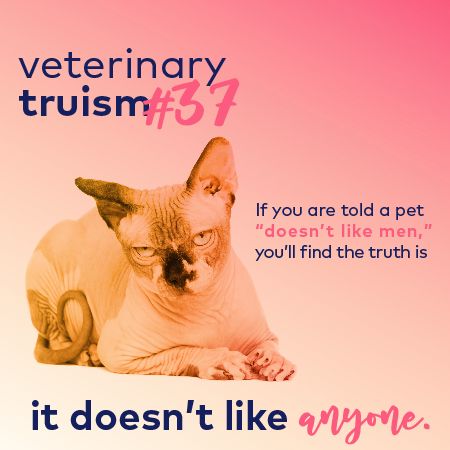
> An estimate, in the mind of the client, is an “exactimate.”
> The person who feeds table scraps or overfeeds the pet will probably not be the person in the exam room with you.
> If a client needs to ask their spouse, the pet's treatment will not happen.
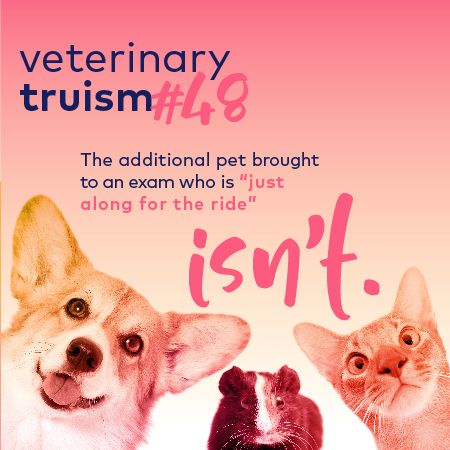
> People will always double what they say they spent at the vet's compared to what they actually did spend.
> If you have the most accessible, easy-to-hit, Alaskan-pipeline-sized vein, the pet will be the most uncooperative and fractious patient.
> The sweetest, most easily handled, cooperative pet will have the tiniest, hard-to-find vein.
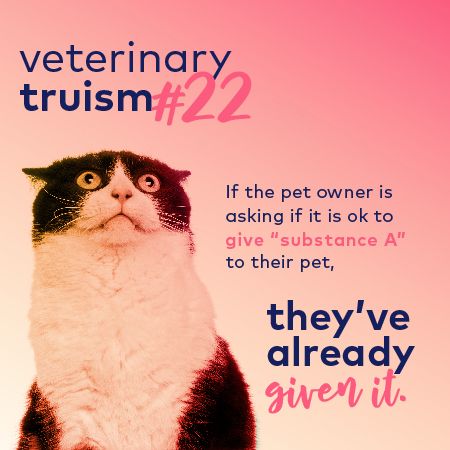
> You will always be told that the poor dog with the smelly, matted, oily, tangled mess of a coat is scheduled for grooming “tomorrow.” This will be stated no matter when or how often you see this dog. Also, all of the problems with this dog's coat are not what it will be in for.
> It's not important for clients to be on time, only for you to be on time.
> There's an inverse relationship between how loudly clients proclaim how well they take care of their pets and how well they actually do.
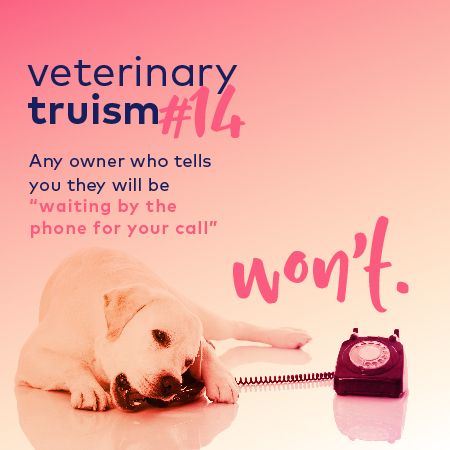
> The best, nicest dogs get the worst diseases.
> If the pet owner doesn't have the previous paperwork or can't remember the name of their previous vet, that means the pet is unvaccinated.
> If you have to carry a pet to or from a person's car, they'll have parked as far from the front door as possible.
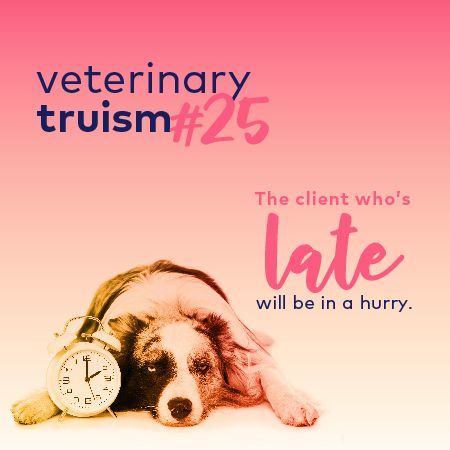
> Always double how long someone tells you their pet has been ill.
> When a client who's late to their appointment is “only five minutes away,” assume they mean football minutes (you know, with all the commercial breaks).
> Diagnostic exclusion principle: If an owner obtains a diagnosis on their pet by looking up something online, it will not be that problem.
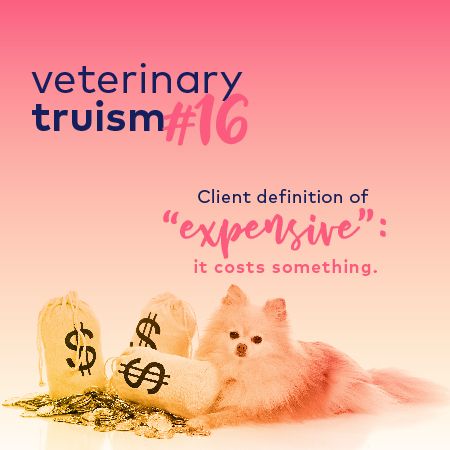
> The client will tell you the most valuable piece of information in diagnosing their pet while you're using your stethoscope.
> You'll be held responsible for what you say, what you don't say, how you say it and what the client thinks you said.
> You will know exactly where you stand with a client and what they think of you the first time you ever tell them “no.”
Editors' note: Do you have any truisms of your own? Let us know in the comments below or send them our way at ve@ubm.com .
A graduate of UC Davis School of Veterinary Medicine, Dr. Dean Scott has enjoyed 35 years in the veterinary profession, including five years with the U.S. Army Veterinary Corps. He now practices small animal medicine at Animal Clinic of Brandon in Brandon, Florida.